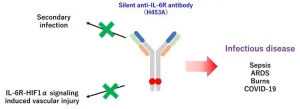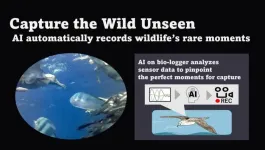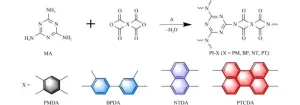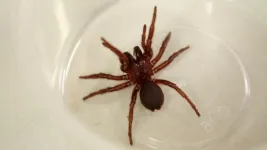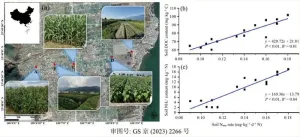(Press-News.org) Large-scale genetic analysis has helped researchers uncover the interplay between cancer-driving genetic mutations and inherited genetic variants in a rare type of blood cancer.
Researchers from the Wellcome Sanger Institute, the University of Cambridge, and collaborators, combined various comprehensive data sets to understand the impact of both cancer-driving spontaneous mutations and inherited genetic variation on the risk of developing myeloproliferative neoplasms (MPN).
The study, published today (17 January) in Nature Genetics, describes how inherited genetic variants can influence whether a spontaneous mutation in a particular gene increases the risk of developing this rare blood cancer.
This analysis has an impact on current clinical predictions of disease development in individuals. Further research is required to understand the biological mechanisms behind how these inherited genetic variants influence the chances of developing rare blood cancer. In the future, this knowledge could aid drug development and interventions that reduce the risk of disease.
Myeloproliferative neoplasms, MPNs, are a group of rare, chronic, blood cancers. There are around 4,000 cases of MPN in the UK each year. 1 These occur when the bone marrow overproduces blood cells2, which can result in blood clots and bleeding. MPNs can also progress into other forms of blood cancer, such as leukaemia.
In the population, there is a large amount of natural variation between individuals’ blood cells, which can affect the amount of blood cells a person has and their particular traits. This is because multiple different genes can influence blood cell features in an individual. During routine blood tests, researchers take known information about these genes and analyse the variation to give a genetic risk score, which is how likely that individual is to develop a disease over their lifetime.
MPNs have been linked to random somatic mutations in certain genes including in a gene called JAK2. However, mutated JAK2 is commonly found in the global population, and the vast majority of these individuals do not have or go on to develop MPN.
Whilst previous studies have identified over a dozen associated inherited genetic variants that increase the risk of MPN, these studies insufficiently explain why most individuals in the population do not go on to develop MPN.
This new study, from the Wellcome Sanger Institute and collaborators, combined information on the known somatic driver mutations in MPN, inherited genetic variants, and genetic risk scores from individuals with MPN.
They found that the inherited variants that cause natural blood cell variation in the population also impact whether a JAK2 somatic mutation will go on to cause MPN. They also found that individuals with an inherited risk of having a higher blood cell count could display MPN features in the absence of cancer-driving mutations, thus, mimicking disease.
Dr Jing Guo, first author from the Wellcome Sanger Institute and the University of Cambridge, said: “Our large-scale statistical study has helped fill the knowledge gaps in how variants in DNA, both inherited and somatic, interact to influence complex disease risk. By combining these three different types of datasets we were able to get a more complete picture of how these variants combine to cause blood disorders.”
Professor Nicole Soranzo, co-senior author from the Wellcome Sanger Institute, the University of Cambridge and Human Technopole, Italy, said: “There has been increasing realisation that human diseases have complex causes involving a combination of common and rare inherited genetic variants with different severity. Previously, we have shown that variation in blood cell parameters and function has complex genetic variability by highlighting thousands of genetic changes that affect different gene functions. Here, we show for the first time that common variants in these genes also affect blood cancers, independent of causative somatic mutations. This confirms a new important contribution of normal variability beyond complex disease, contributing to our understanding of myeloproliferative neoplasms and blood cancer more generally.”
Dr Jyoti Nangalia, co-senior author from the Wellcome Sanger Institute and the Wellcome-MRC Cambridge Stem Cell Institute at the University of Cambridge, said: “We have a good understanding of the genetic causes of myeloproliferative neoplasms. In fact, many of these genetic mutations are routine diagnostic tests in the clinic. However, these mutations can often be found in healthy individuals without the disease. Our study helps us understand how inherited DNA variation from person to person, can interact with cancer-causing mutations to determine whether disease occurs in the first place, and how this can alter the type of any subsequent disease that emerges. Our hope is that this information can be incorporated into future disease prediction efforts.”
ENDS
Contact details:
Rachael Smith
Press Office
Wellcome Sanger Institute
Cambridge, CB10 1SA
Email: press.office@sanger.ac.uk
Notes to Editors:
Myeloproliferative neoplasms (MPN), Blood Cancer UK. Available at https://bloodcancer.org.uk/understanding-blood-cancer/myeloproliferative-neoplasms/
Myeloproliferative neoplasms, Cancer Research UK. Available at https://www.cancerresearchuk.org/about-cancer/other-conditions/myeloproliferative-neoplasms
Publication:
J. Guo, K. Walter, P. M. Quiros, et al. (2024) Inherited polygenic effects on common hematological traits influence clonal selection on JAK2V617F and the development of myeloproliferative neoplasms. Nature Genetics. DOI: 10.1038/s41588-023-01638-x
Funding:
This research includes funding from Cancer Research UK and Wellcome. A full acknowledgment list can be found in the publication.
Selected websites:
About the University of Cambridge
The University of Cambridge is one of the world’s top ten leading universities, with a rich history of radical thinking dating back to 1209. Its mission is to contribute to society through the pursuit of education, learning and research at the highest international levels of excellence.
The University comprises 31 autonomous Colleges and 150 departments, faculties and institutions. Its 24,450 student body includes more than 9,000 international students from 147 countries. In 2020, 70.6% of its new undergraduate students were from state schools and 21.6% from economically disadvantaged areas.
Cambridge research spans almost every discipline, from science, technology, engineering and medicine through to the arts, humanities and social sciences, with multi-disciplinary teams working to address major global challenges. Its researchers provide academic leadership, develop strategic partnerships and collaborate with colleagues worldwide.
The University sits at the heart of the ‘Cambridge cluster’, in which more than 5,300 knowledge-intensive firms employ more than 67,000 people and generate £18 billion in turnover. Cambridge has the highest number of patent applications per 100,000 residents in the UK. www.cam.ac.uk
The Wellcome Sanger Institute
The Wellcome Sanger Institute is a world leader in genomics research. We apply and explore genomic technologies at scale to advance understanding of biology and improve health. Making discoveries not easily made elsewhere, our research delivers insights across health, disease, evolution and pathogen biology. We are open and collaborative; our data, results, tools, technologies and training are freely shared across the globe to advance science
Funded by Wellcome, we have the freedom to think long-term and push the boundaries of genomics. We take on the challenges of applying our research to the real world, where we aim to bring benefit to people and society.
Find out more at www.sanger.ac.uk or follow us on Twitter, Instagram, Facebook, LinkedIn and on our Blog.
About Wellcome
Wellcome supports science to solve the urgent health challenges facing everyone. We support discovery research into life, health and wellbeing, and we’re taking on three worldwide health challenges: mental health, infectious disease and climate and health. https://wellcome.org/
END
Role of inherited genetic variants in rare blood cancer uncovered
2024-01-17
ELSE PRESS RELEASES FROM THIS DATE:
AI model predicts death, complications for patients undergoing angioplasty, stents
2024-01-17
When a person has one or more blocked arteries, providers may choose to conduct a minimally invasive procedure known as percutaneous coronary intervention, or PCI.
By inflating a balloon and potentially placing a stent, blood can flow more freely from the heart.
Despite carrying less risk than open surgery, stenting and balloon angioplasty can result in complications like bleeding and kidney injury.
Researchers at Michigan Medicine developed an AI-driven algorithm that accurately predicts death and complications after PCI — which could emerge as a tool ...
E-cigarettes help pregnant smokers quit without risks to pregnancy
2024-01-17
A new analysis of trial data on pregnant smokers, led by researchers at Queen Mary University of London, finds that the regular use of nicotine replacement products during pregnancy is not associated with adverse pregnancy events or poor pregnancy outcomes.
The PREP 2 study used data collected from over 1100 pregnant smokers attending 23 hospitals in England and 1 stop-smoking service in Scotland to compare pregnancy outcomes in women who did or did not use nicotine in the form of e-cigarettes (EC) or nicotine patches ...
John Innes Centre researcher honored with prestigious Blavatnik award
2024-01-17
The pioneering research of Dr Yiliang Ding investigating the structure and function of RNA in living cells has been recognised with a major award.
Yiliang a group leader at the John Innes Centre, is among nine recipients of the 2024 Blavatnik Awards for Young Scientists in the UK, announced today by the Blavatnik Family Foundation and The New York Academy of Sciences.
The awards recognise research that is transforming medicine, technology, and our understanding of the world across three categories: Chemical Sciences, Physical Sciences & Engineering, and ...
Mass-producible miniature quantum memory
2024-01-17
Researchers at the University of Basel have built a quantum memory element based on atoms in a tiny glass cell. In the future, such quantum memories could be mass-produced on a wafer.
It is hard to imagine our lives without networks such as the internet or mobile phone networks. In the future, similar networks are planned for quantum technologies that will enable the tap-proof transmission of messages using quantum cryptography and make it possible to connect quantum computers to each other.
Like their conventional counterparts, such quantum networks require memory elements in which information can be temporarily stored ...
A new targeted treatment calms the cytokine storm
2024-01-17
Osaka, Japan – Cytokines are chemical messengers that help the body get rid of invading bacteria and viruses, and control inflammation. The body carefully balances cytokines because they help keep the immune system healthy. However, this balance is upset if the immune system overreacts. A serious infection or a severe burn can unleash a cytokine storm in the body. During the storm—also called cytokine release syndrome (CRS)—the body produces too many cytokines, leading to life-threatening inflammation.
Interleukin-6 (IL-6) is a key cytokine in the storm because it helps to drive the inflammation that damages ...
Tiny AI-based bio-loggers revealing the interesting bits of a bird’s day
2024-01-17
Osaka, Japan – Have you ever wondered what wildlife animals do all day? Documentaries offer a glimpse into their lives, but animals under the watchful eye do not do anything interesting. The true essence of their behaviors remains elusive. Now, researchers from Japan have developed a camera that allows us to capture these behaviors.
In a study recently published in PNAS Nexus, researchers from Osaka University have created a small sensor-based data logger (called a bio-logger) that automatically detects and records video of infrequent behaviors in wild seabirds without supervision by researchers.
Infrequent behaviors, such as diving into the water for food, can ...
SDG-washing found among Canada's top companies
2024-01-17
Canada's biggest companies often speak of their plans to be more sustainable, but a new study found corporations aren't fully backing up those commitments.
A team of University of Waterloo researchers concluded that corporate investing in communities fell despite an increase in companies committing to the United Nation's Sustainable Development Goals (SDGs) over the last decade.
Researchers investigated the community investment of Canada's 58 leading private-sector companies as a percentage of their net profit after tax to determine whether introducing SDGs created ...
Enhanced photoelectrochemical water splitting with a donor-acceptor polyimide
2024-01-17
Polyimide (PI) has emerged as a promising organic photocatalyst owing to its distinct advantages of high visible-light response, facile synthesis, molecularly tunable donor-acceptor structure, and excellent physicochemical stability. However, the synthesis of high-quality PI photoelectrode remains a challenge, and photoelectrochemical (PEC) water splitting for PI has been less studied.
A research group of Huiyan Zhang and Sheng Chu from Southeast University prepared PI films by a ...
Spider venom heart drug a step closer
2024-01-17
A spider venom molecule being investigated by a University of Queensland team has met critical benchmarks towards becoming a treatment for heart attack and stroke.
Associate Professor Nathan Palpant and Professor Glenn King from UQ’s Institute for Molecular Bioscience have previously shown that the drug candidate Hi1a protects cells from the damage caused by heart attack and stroke.
Dr Palpant said a subsequent study has put the drug through a series of preclinical tests designed to mimic real-life treatment scenarios.
“These tests are a major step towards helping us understand how Hi1a would work ...
Is soil nitrogen mineralization important in agricultural intensive areas?
2024-01-17
Soil nitrogen mineralization (Nmin) is a key process that converts organic N into mineral N that controls soil N availability to plants. However, regional assessments of soil Nmin in cropland and its affecting factors are lacking, especially in relation to variation in elevation. Nitrogen is an essential nutrient for crops but mineral N in soil, the only form that can be absorbed and used by crops, represents only about 1% of total soil N. Although N fertilization is commonly a necessary method for supplying N to crops, N release due to excess N fertilizer in the environment ...


